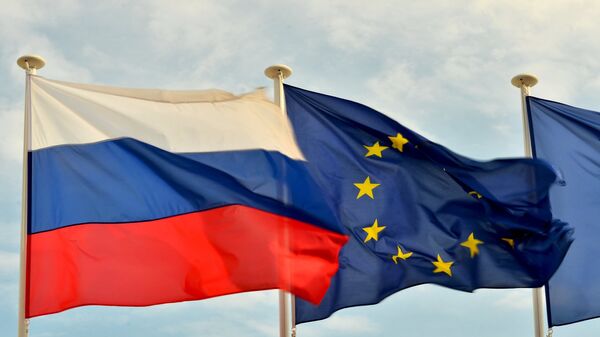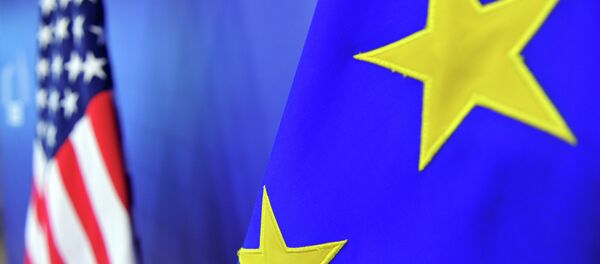Russian-Western relations deteriorated after the start of the Ukrainian crisis and Crimea's decision to rejoin Russia as a result of the referendum in 2014. The latter was not recognized by the West and the reunification resulted in anti-Russian sanctions, which have negatively impacted Russia's economic and trade relations with its European partners.
READ MORE: FSB: Conf Cup 2017 Example of Successful Russia-EU Security Partnership
Most recently, Russian-European ties have soured over Moscow's alleged involvement in the poisoning of Russian former intelligence officer Sergei Skripal and his daughter Yulia on UK soil. The United Kingdom has accused Moscow of orchestrating the attack with what UK experts claimed was a weapons-grade nerve agent A234, allegedly linked to the Soviet-made Novichok group.
Russia, for its part, has strongly rejected the accusations and offered to assist in the investigation. However, Moscow's request for samples of the chemical substance used to poison the Skripals was rejected. The allegations have resulted in a wide-scale diplomatic crisis, with London and more than 25 countries which supported its claims expelling over 150 Russian diplomats. In response, Moscow also announced that it would expel foreign diplomats.
EU-Russian Tensions to Continue
In the short run and, maybe, in the medium term, political and diplomatic tensions between the European Union and Russia would continue, Paolo Magri, the executive vice president and director of the Italian Institute for International Political Studies, said.
"It's tough, because it's not a tension on interest… Our problems and tensions have more to do with values and interference, which both think the other is doing," Magri indicated.
Wolfgang Ischinger, the chairman of the Munich Security Conference, in turn, suggested that the fundamental problem in EU-Russian relationship were perceptions and presentations of events.
"I want to just briefly point to one fundamental problem which is, what I would like to call … the narratives gap… I am afraid to say that this narratives gap, the narrative that is popular here in Russia, on the one hand, and the narrative, if I may call it the NATO narrative, seems to be diverging even more," the diplomat stated.
Ischinger also mentioned a range of issues serving as points of disagreement between Russia and the European Union and widening this "narratives gap."
"Of course, the conflict in Syria, the unresolved situation in Donbas, the Skripal poisoning in England, the use of chemical weapons in Douma, and shooting down [of] airliners over the Ukrainian territory, these unresolved issues and cases, of course, have not helped, have served to aggravate the situation further," Ischinger pointed out.
Hope for Consensus Still Remains
Kimberly Marten, the Ann Whitney Olin professor of political science at Columbia University, noted that the search for common ground in bilateral relations was complicated by Russia's reluctance to use multilateral mechanisms of dialogue.
"Europe’s view of this is that Russia has chosen the path of being a rogue state that is not interested in participating in the kinds of international organizations that have been set up for many many years to try to deal with… issues on a more cooperative basis," Marten told Sputnik.
She, nevertheless, added that it was still possible to find examples of successful interaction between the two parties, citing the recent decision of the European Commission to conclude its antitrust investigation into Russia's Gazprom.
READ MORE: Germany Shares Russia’s Concern Over Unreliability of US — Bundestag Official
"I would like to remind us that just recently, just last week, there was a new agreement reached between Gazprom and the European Union that might point the way forward in the future because it was something that each side could take as a win," Marten argued.
On Thursday, the European Commission wrapped up a years-long antitrust probe into Gazprom, imposing legally binding obligations on the Russian company that were aimed at addressing the European Union’s competition concerns and ensuring the free flow of gas at competitive prices in Europe.
Views and opinions expressed in this article are those of the contributors and do not necessarily reflect those of Sputnik.




